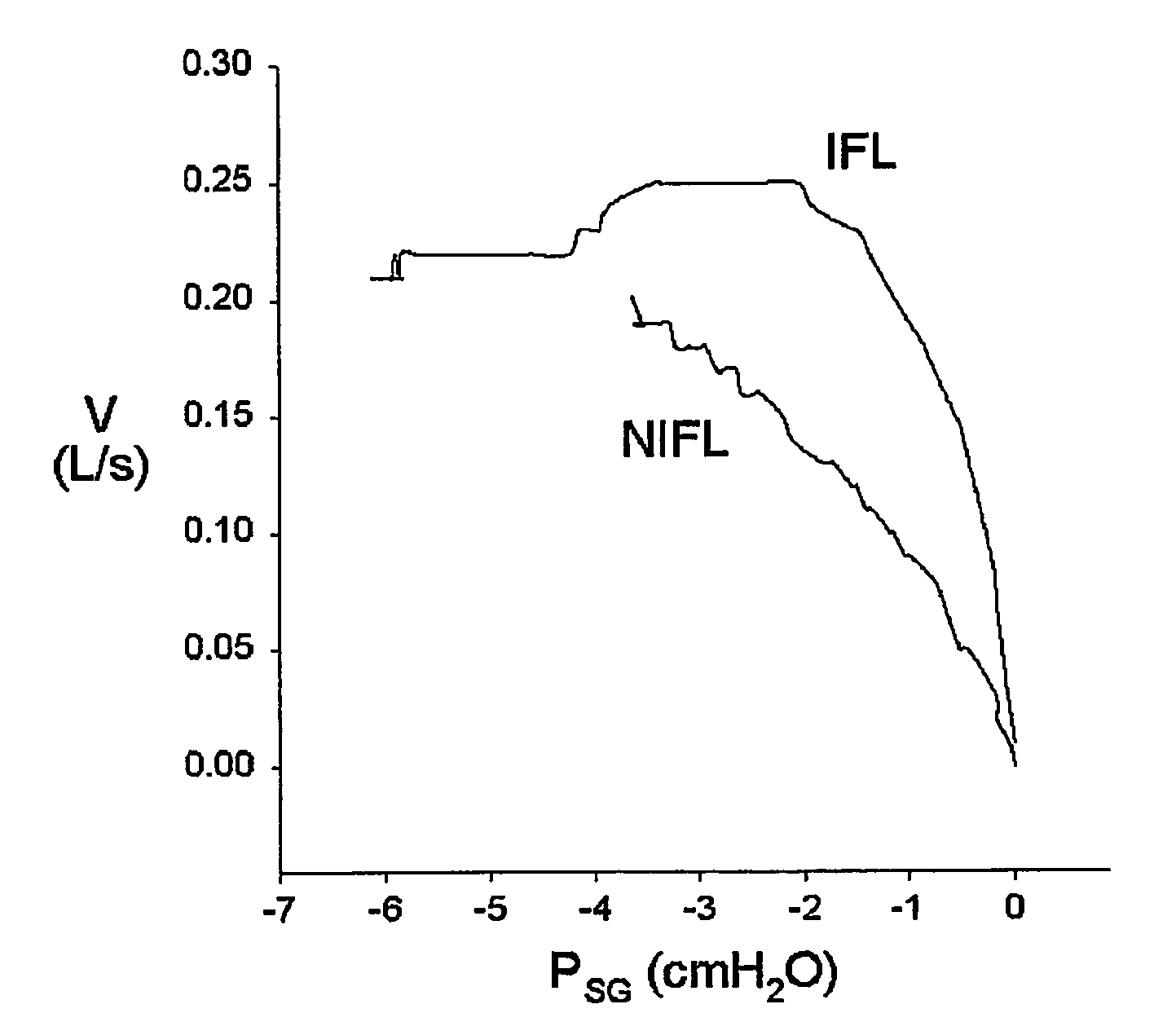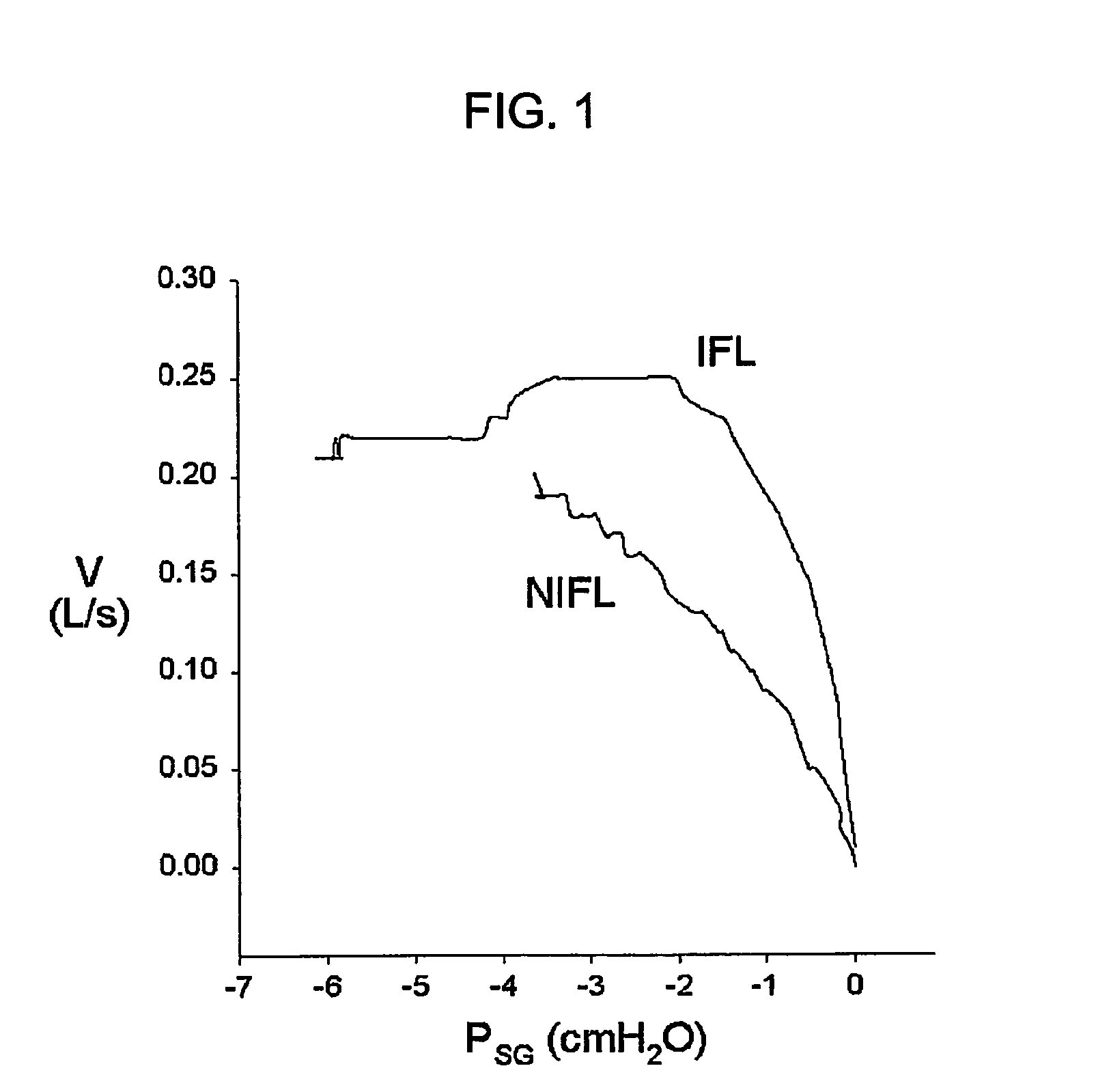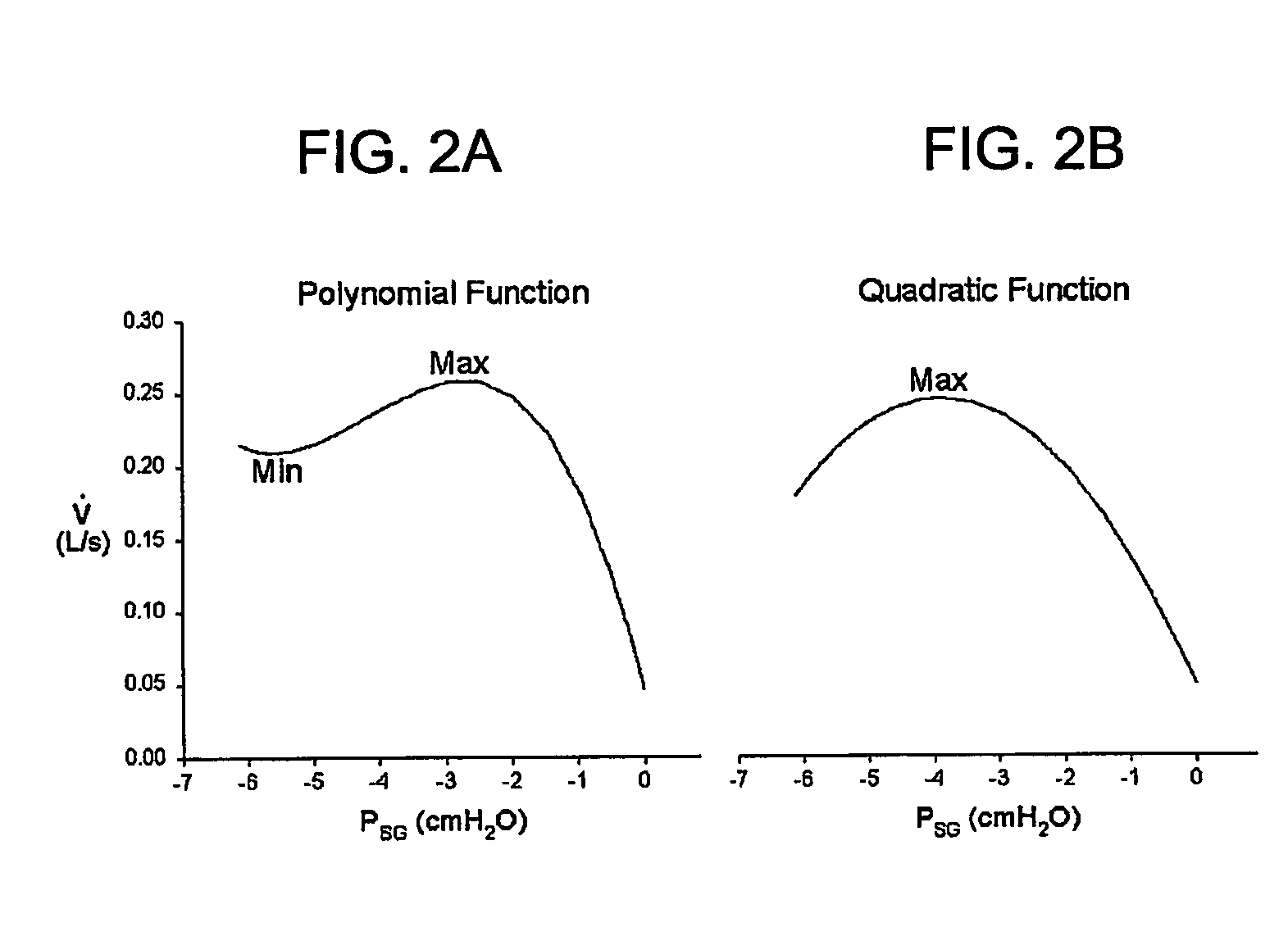System for diagnosing and treating sleep apnea
a technology for sleep apnea and sleep disorders, applied in the field of systems for diagnosing sleep apnea, can solve the problems of false diagnosis, inability to find, and time-consuming known process, and achieve the effect of reducing the resistance of the airway in the human patien
- Summary
- Abstract
- Description
- Claims
- Application Information
AI Technical Summary
Problems solved by technology
Method used
Image
Examples
Embodiment Construction
[0084]In developing the foundations of the present invention, the inventors herein consider a steady homogenous flow in a circular cylinder (the upper airway), with the assumption that the flow of air in the upper airway will expand without the loss or gain of heat. Consider a streamline of air, which connects two points M1, the upstream pressure, which is atmospheric pressure in the present model, and M2, the downstream pressure, which is equivalent to supraglottic pressure in the present model. For each point, there is a density (ρ), pressure (P), area (A), velocity (V) and flow (F) that characterize that point. In the modeling that follows, it should be noted that the goal is determination of the flow of the upper airway at the downstream pressure point, M2. Flow, which is constant throughout the upper airway, is given by:
Total Energy=Kinetic Energy [T]+Potential Energy [E]+Internal Energy (1)
[0085]Internal energy=0
[0086]Differentiate both sides of equation (1)
[0087]dK=dT+dE(2)T...
PUM
 Login to View More
Login to View More Abstract
Description
Claims
Application Information
 Login to View More
Login to View More - R&D
- Intellectual Property
- Life Sciences
- Materials
- Tech Scout
- Unparalleled Data Quality
- Higher Quality Content
- 60% Fewer Hallucinations
Browse by: Latest US Patents, China's latest patents, Technical Efficacy Thesaurus, Application Domain, Technology Topic, Popular Technical Reports.
© 2025 PatSnap. All rights reserved.Legal|Privacy policy|Modern Slavery Act Transparency Statement|Sitemap|About US| Contact US: help@patsnap.com



